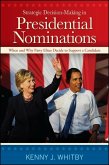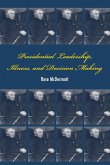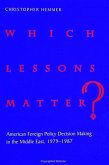The subject of refugee policy has generated considerable public debate during the past decade. In this case study of presidential decision-making, David W. Engstrom analyzes the Carter Administration's response to the Mariel boatlift from Cuba in 1979. Engstrom argues that a faulty decision making structure and ignorance of the historic dynamics of Cuban immigration contributed to the government's mishandling of the refugee crisis. More generally, he explores the ways in which refugee policy is shaped by foreign policy concerns, domestic politics, and economic circumstances. This important book will be of interest to students and scholars of Latin American studies, foreign policy, and immigration and refugee policy.








